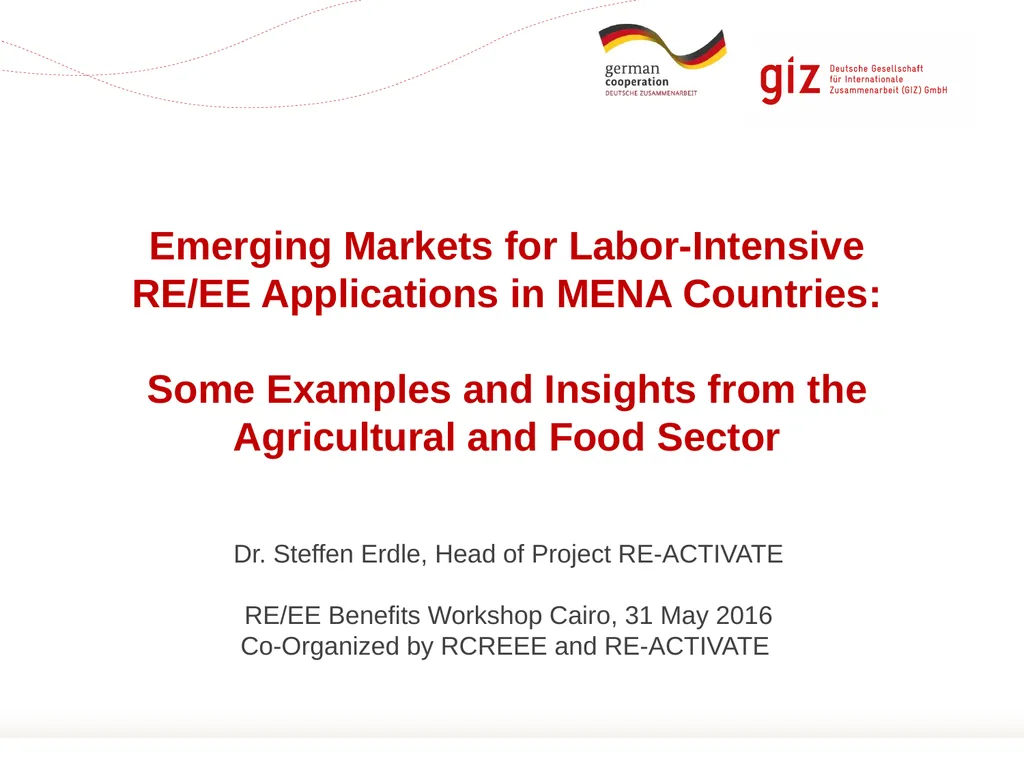
Author : myesha-ticknor | Published Date : 2025-06-23
Description: Dr. Steffen Erdle, Head of Project RE-ACTIVATE REEE Benefits Workshop Cairo, 31 May 2016 Co-Organized by RCREEE and RE-ACTIVATE Emerging Markets for Labor-Intensive REEE Applications in MENA Countries: Some Examples and Insights from theDownload Presentation The PPT/PDF document "" is the property of its rightful owner. Permission is granted to download and print the materials on this website for personal, non-commercial use only, and to display it on your personal computer provided you do not modify the materials and that you retain all copyright notices contained in the materials. By downloading content from our website, you accept the terms of this agreement.
Here is the link to download the presentation.
"Dr. Steffen Erdle, Head of Project RE-ACTIVATE"The content belongs to its owner. You may download and print it for personal use, without modification, and keep all copyright notices. By downloading, you agree to these terms.













